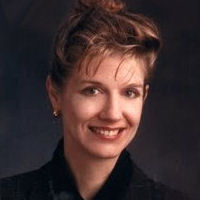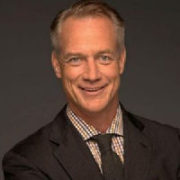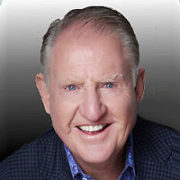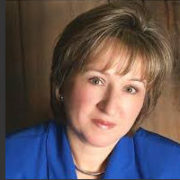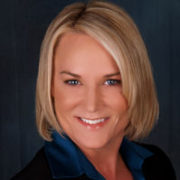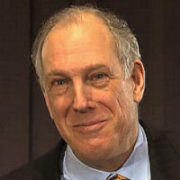Martha Rogers
Recognized for well over a decade as one of the leading authorities on customer-focused relationship management strategies, Dr. Martha Rogers is an acclaimed author, business strategist, and a founding partner of one of the world’s premier customer-centered consultancies. Business 2.0 Magazine named Martha Rogers one of the nineteen “most important business gurus” of the past century.
The World Technology Network cited her as “an innovator most likely to create visionary ‘ripple effects’.” Martha Rogers’ counsel and insight are regularly sought by Fortune 500 and Blue Chip executives. Her experience in documenting customer value, and her expertise in applying “out-of-the-box” thinking makes Martha Rogers equally popular among the global media, engagement planners, event organizers, as well as corporate and association leaders who are eager to learn more about customer-centric concepts and methodologies.
An Adjunct Professor at the Fuqua School of Business at Duke University, Dr. Rogers is the co-director of the Duke Center for Customer Relationship Management. She is widely published in academic and trade journals, including Harvard Business Review, Journal of Advertising Research, Journal of Public Policy and Marketing, and Journal of Applied Psychology. She has been named International Sales and Marketing Executives’ Educator of the Year..
TOPICS
Full Day Executive Seminar: Maximizing Your Return on Customer
Customers are a scarce resource–finite in number, and expensive to replace. So it is vital to create the most value possible from the customers on hand, including any new customers coming in to the franchise. Unfortunately, because companies do not measure their Return on Customer and aren’t held accountable for it, managers have no incentive whatsoever to preserve and increase the value of the customer base as a financial asset. As a result, companies frequently end up destroying a great deal of their own value in a single-minded quest for short-term income.
Creating genuine enterprise value from customers is a balancing act–an optimization problem. The actions one takes to acquire customers more aggressively have the potential to reduce current customers’ lifetime values. Selecting a more relevant message for a marketing promotion will increase the attractiveness of the promotion, but it will also limit the target population. Streamlining the call center by installing an interactive voice response system may reduce the cost to serve customers, but could also reduce satisfaction levels or hinder the satisfactory resolution of complaints.
A company that fully embraces genuine value creation will inevitably become customer-oriented, striving to understand and adopt the different perspectives of customers themselves. This will not only lead to a more effective and profitable enterprise, over the long term, but a more attractive and ethical corporate culture as well. In this full-day seminar, Don Peppers will conduct classes in four interactive modules, designed to explore the issues involved in maximizing a firm’s Return on Customer.
High Demand Presentation: Applying 1to1 Customer Insights to New Product Development and Launch
A high proportion of new products & services bomb because they misjudge the customers’ needs. That means a high proportion of your marketing budget is poured into failures. We’ve all seen them. In fact, you may even have been responsible for one or two yourself that you’d rather forget.
In this session, you will cover how to use customer insights generated by 1to1 marketing to raise the success rate of your new product introduction strategy. By linking new product ideation, development and launch directly to an understanding of customer need, you can spot and eliminate turkeys before you invest too much time and money in them. Just as importantly, you can focus and refine your efforts on new products and services that stand a much better chance of becoming your revenue-generating future stars.
High-Demand Presentation: Customer Orientation & Business Ethics: Joined at the Hip
A company that fully embraces genuine value creation will inevitably become the customer-oriented, striving to understand and adopt the different perspectives of cutomers themselves. Putting yourself in the role of a customer, in order to better understand your own business, is virtually the same thing as beginning to cultivate a culture of customer trust.
For a business to be successful, its customers must trust it to act in their own interest–to recommend products and services not based just on what the company wants to sell, but based on what the company’s own information and analytical systems indicate that this particular customer will find the most valuable. This process not only leads to a more effective and profitable enterprise, over the long term, but a more attractive and ethical corporate culture, as well. In this track, Don Peppers will conduct a very interactive seminar, challenging participants to use what they have now learned to think through a variety of ethical dilemmas commonly faced by businesses and business executives and posed to the seminar audience for discussion.
Keynote Sessions:
Business Ethics: How to Succeed in a Cut-Throat World and Still Sleep at Night
You might think that it’s easy to tell right from wrong in business. But that isn’t true. Few business ethics issues present themselves in a simple, easy-to-understand way. Anyone making real business decisions is likely to come face to face with a variety of ethical dilemmas. It’s often easy to look the other way, but is that right? It’s nearly as easy to avoid all hint of controversy, but you would be at a competitive disadvantage, permanently. In this fascinating one-hour seminar, based on a chapter in Don Peppers’s book Life’s a Pitch, participants are asked to evaluate a variety of real-life ethical dilemmas, and then learn the outline of four basic principals by which most of these situations can be resolved.
Customer Satisfaction for Fun and Profit
Customers are not on-off switches. They are volume dials. In this one-hour seminar, based on the international bestseller The One to One Future, you are asked what it really means to have truly satisfied customers. Satisfied customers will come back for more and more. They will be more likely to recommend other customers to you. They will probably cost you less to serve. All around, customer satisfaction can pay big financial dividends to a firm. And what does it take to ensure great customer satisfaction? More than anything else, it requires you to develop a culture of customer trust–to show customers that you have their own interests at heart. But it also requires you to treat customers individually–to do business with them, 1 to 1.
Customer Value is the Key to Long-Term Shareholder Value
The next phase of the customer revolution is to translate customer value into shareholder value. You’ll be shown why the only true measure of a company’s performance is how many customers it has, the amount of money it is able to earn from those customers and how each of these indicators change over time. Plus, you’ll be offered a methodology for calculating and increasing both customer and shareholder value.
Maximizing Your Return on Customer
Most business executives today would agree that a company’s value is closely related to the value of its customers–that is, the sum total of lifetime values in the current and future customer base. Customers are the scarce resource for a business. They are hard to acquire, costly to lose and difficult to replace. Your company should want to generate the most value possible from each customer, but there are always tradeoffs. A more aggressive customer acquisition campaign might irritate some and reduce their longterm value. A more targeted program will drive a higher response rate, but on a smaller population of prospects. In other words, creating maximum value from your customers involves optimization–balancing current-period profits against decreases or increases in customer lifetime values, to maximize your “Return on Customer.” This on-hour presentation will take you on a tour through Don Peppers’ and Martha Rogers’ newest business strategy book entitled Return on Customer. Hold on to your seat, though, because this is a rocket-ship ride through some of the most intellectually stimulating territory in global business today.
Profiting from Better Customer Relationships
Customer relationships are more important today than ever before. Web sites, call centers, automated sales forces–every type of business now has technology that enables it to treat different customers differently. So how do you earn a profit from this? How can you develop and maintain relationships with your customers (whether they are consumers or other businesses), and then use those relationships to benefit your bottom line? In this one-hour discussion, based on Don Peppers’ and Martha Rogers’ best-selling marketing primer, The One to One Fieldbook, you’ll be provided a concise overview of some of the strategies today’s best relationship marketers are following, and then be talked through a four-step program for creating, maintaining, and profiting from relationships with your own customers.
Taking the Customer’s Perspective. Really Now.
Don Peppers and Martha Rogers, Ph.D. helped kick off the relationship revolution a decade ago with the landmark first book, The One to One Future. In the years since, along with authoring five more books, the Peppers & Rogers Group management-consulting firm has converted “one to one” from a theoretical concept into a practical methodology driving real business results–helping companies maximize the value of every customer relationship. The only way to get those results, Peppers and Rogers say, is to step back from your organization and take the customer’s perspective–really take the customer’s perspective, in the full knowledge that customers are different, and every one is likely to have a slightly different set of motivations and needs. Ultimately, understanding the customer’s viewpoint requires a firm to earn the customer’s trust, and often this involves a radical shift for the organization, not only in terms of metrics and responsibilities, but also in terms of culture. Genuinely taking the customer’s own perspective is probably the most important–yet most difficult–task to be accomplished before any organization (whether public or private) can truly enjoy the benefits of the relationship revolution.
Visionary Presentation/Strategic Future of CRM Defined: Real Impact: Achieving a Return on Customers
There is a new star by which you need to steer your business: the impact of activity on customer value. Every management decision you take should be made with an eye on this new star. Drawing on the experiences of real-life organizations he has worked with and studied, best-selling author, business visionary and practitioner Don Peppers will explain how to create a framework that drives and measures “Return on Customer.” Companies are engaging in actions every day that create or destroy the value of customers, but for the most part they are unconscious of the consequences because they are not measuring them. At this session, the world authorities on Marketing One to One as a way of doing business will show you how to make explicit the long-term effect on customer value with every action your organization takes. Don will be drawing on un-published work which he has been researching for his next breakthrough strategic business publication, and addressing THE question facing us all: how to achieve viable return on customer investment.
Full Biography
Martha Rogers Recognized for well over a decade as one of the leading authorities on customer- focused relationship management strategies, Martha Rogers, Ph.D., is an acclaimed author, business strategist and a founding partner of Peppers & Rogers Group, the world’s premier customer- centered consultancy.
Business 2.0 magazine named Martha one of the 19 “most important business gurus” of the past century. The World Technology Network cited her as “an innovator most likely to create visionary ‘ripple effects’.” And in 2008, the Direct Marketing Association asked Martha to serve as Honorary Governor, noting that her contributions to the direct marketing business, and her name “symbolize ECHO excellence.”
Martha’s counsel and insight are regularly sought by Global 1000 and Blue Chip executives. Her experience in optimizing and documenting customer value, and her expertise in applying “out-of-the-box” thinking makes her equally popular among global media, engagement planners, event organizers, as well as corporate and association leaders who are eager to learn more about customer-centric concepts and methodologies. Martha’s thought leadership and presentations routinely focus on the business issues that today’s global enterprises are grappling with, while trying to maintain a competitive edge in their marketplace.
These include:
• Balancing long- and short-term goals by managing customer value
• Building stronger customer relationships and customer experiences to build shareholder value
• What engagement, innovation and trust mean for the future viability of every business
• How to cascade the changes needed in an organization to build the value that customers create
• How to use increases in customer revenue and customer equity as the basis for compensation and reward
• Why and how to overhaul your business model before your competition (or channel partner)
does it for you With co-author Don Peppers, Martha has produced a legacy of international best-sellers that have collectively sold well over a million copies in 18 languages. Peppers’ and Rogers’ latest thinking is embodied in their newest book, Rules to Break & Laws to Follow—www.rulesandlaws.com— named as the inaugural title to Microsoft’s “Executive Leadership Series.” This timely publication addresses the challenges of success in a world where empowered customers and networked employees hold more power than the influence of your brand. The book further exposes the crisis of short-termism rampant in business today, and prescribes the path out.
Their 2005 publication of Return On Customersm(ROC) advanced the concept of the customer as a strategic asset, documenting that the customer base is capable of driving a company’s long-term economic worth. It climbed to the top 20 business books on Amazon.com, and was a top 10 best- seller for 2005 with 800-CEO-Read. These successes follow in the footsteps of Peppers’ and Rogers’ other books, The One to One Future(1993), which BusinessWeekcalled “one of the bibles of new marketing”; Enterprise One to One(1997), which received a five-star rating from The Wall Street Journal; as well as The One to One Fieldbook(1999), The One to One Manager(1999); and One to One B2B, which made The New York Timesbest-seller list within a month of publication in 2001.
The authors have also published the first-ever CRM textbook for university use in graduate level courses, Managing Customer Relationships(April 2004), which reached best-seller status in the business community within days of publication. An Adjunct Professor at the Fuqua School of Business at Duke University, Martha has been the co-director of the Duke Center for Customer Relationship Management. She is widely published in academic and trade journals, including Harvard Business Review, Journal of Advertising Research, Journal of Public Policy and Marketing, and Journal of Applied Psychology. She has been named International Sales and Marketing Executives’ Educator of the Year. Martha began her professional career as a copywriter and advertising executive, and earned her Ph.D. at the University of Tennessee as a Bickel fellow. At Peppers & Rogers Group, Martha has led several large subscription-based research studies focusing on particular aspects of CRM. She serves on the Boards of Directors for ClickSquared and eGlue.

